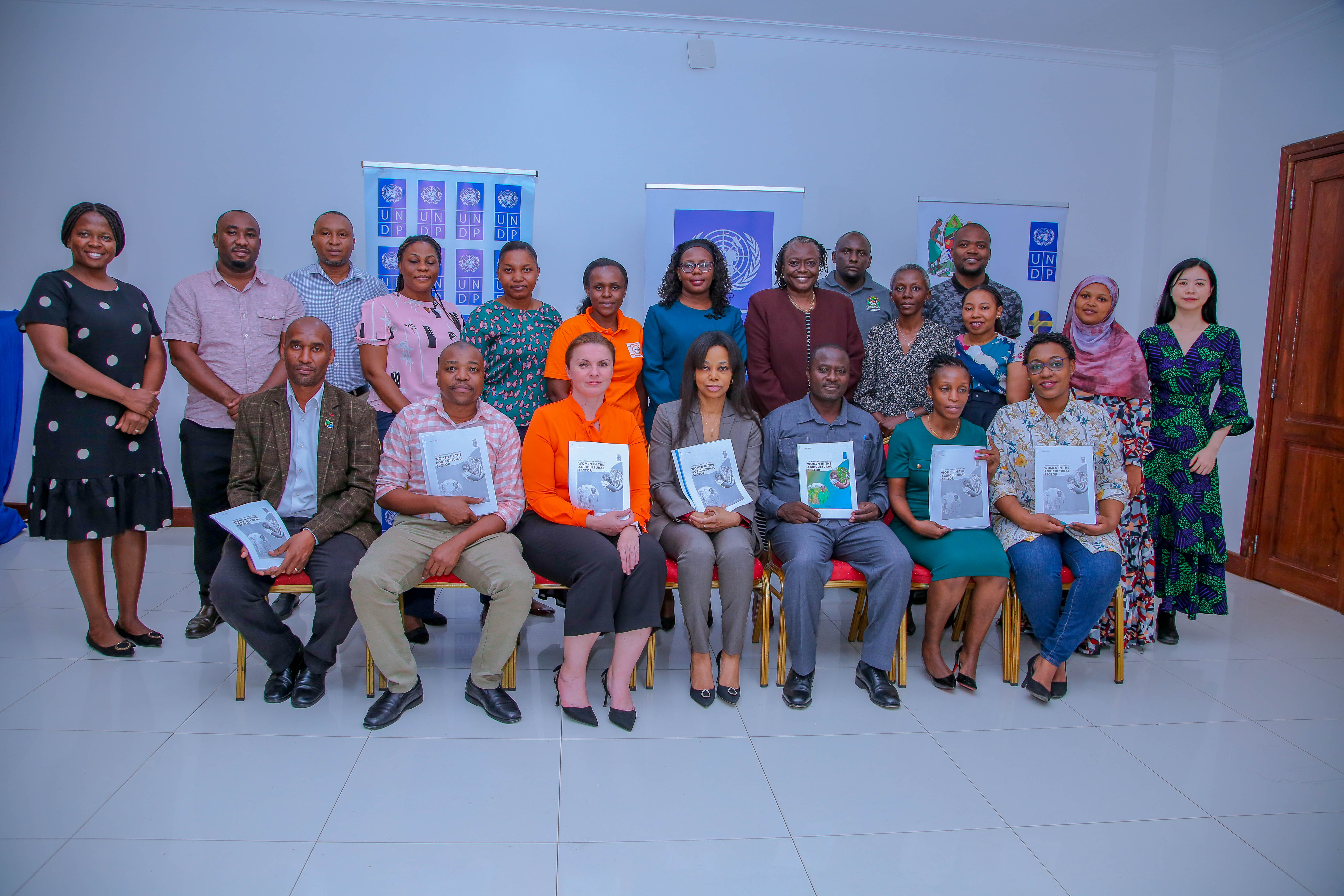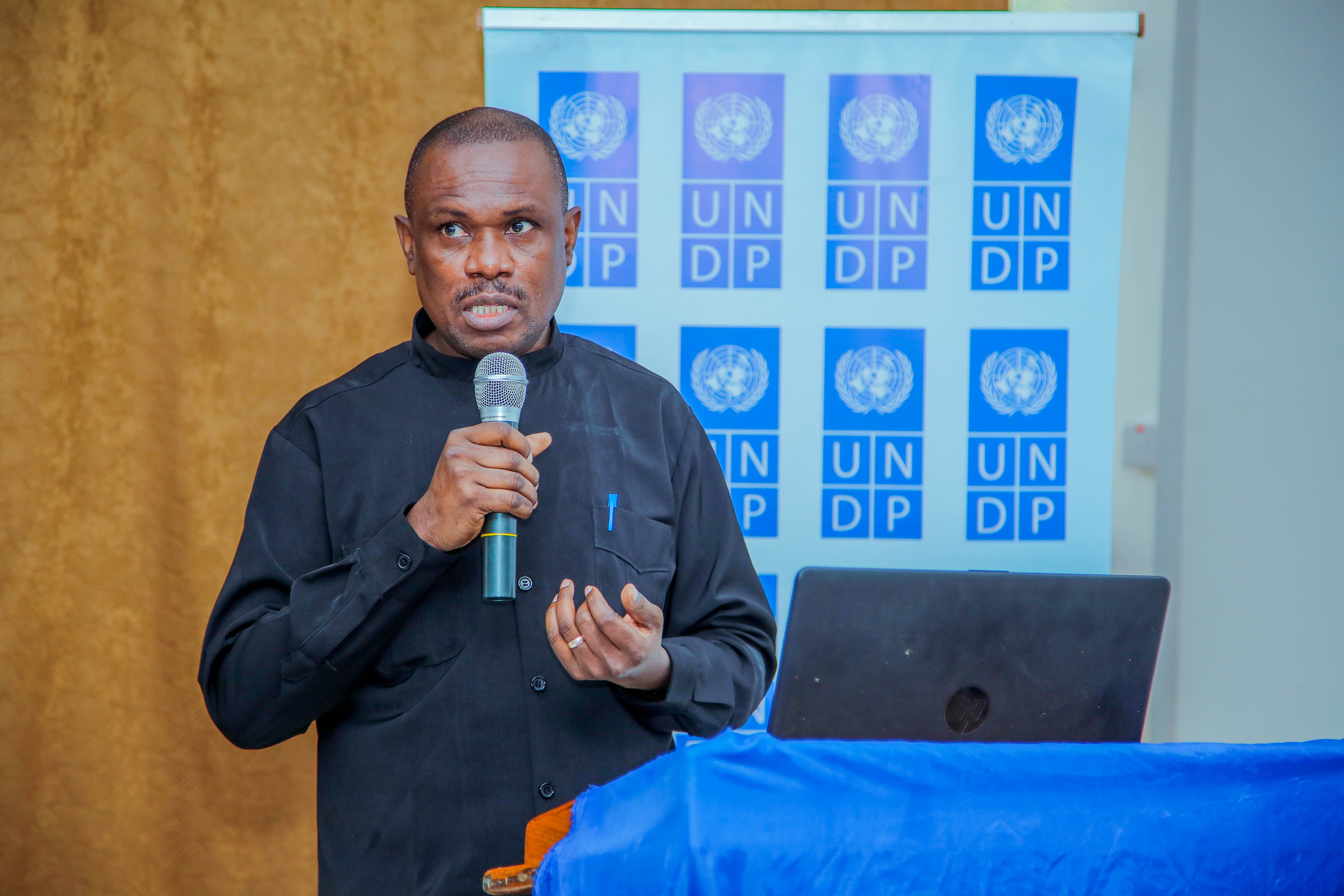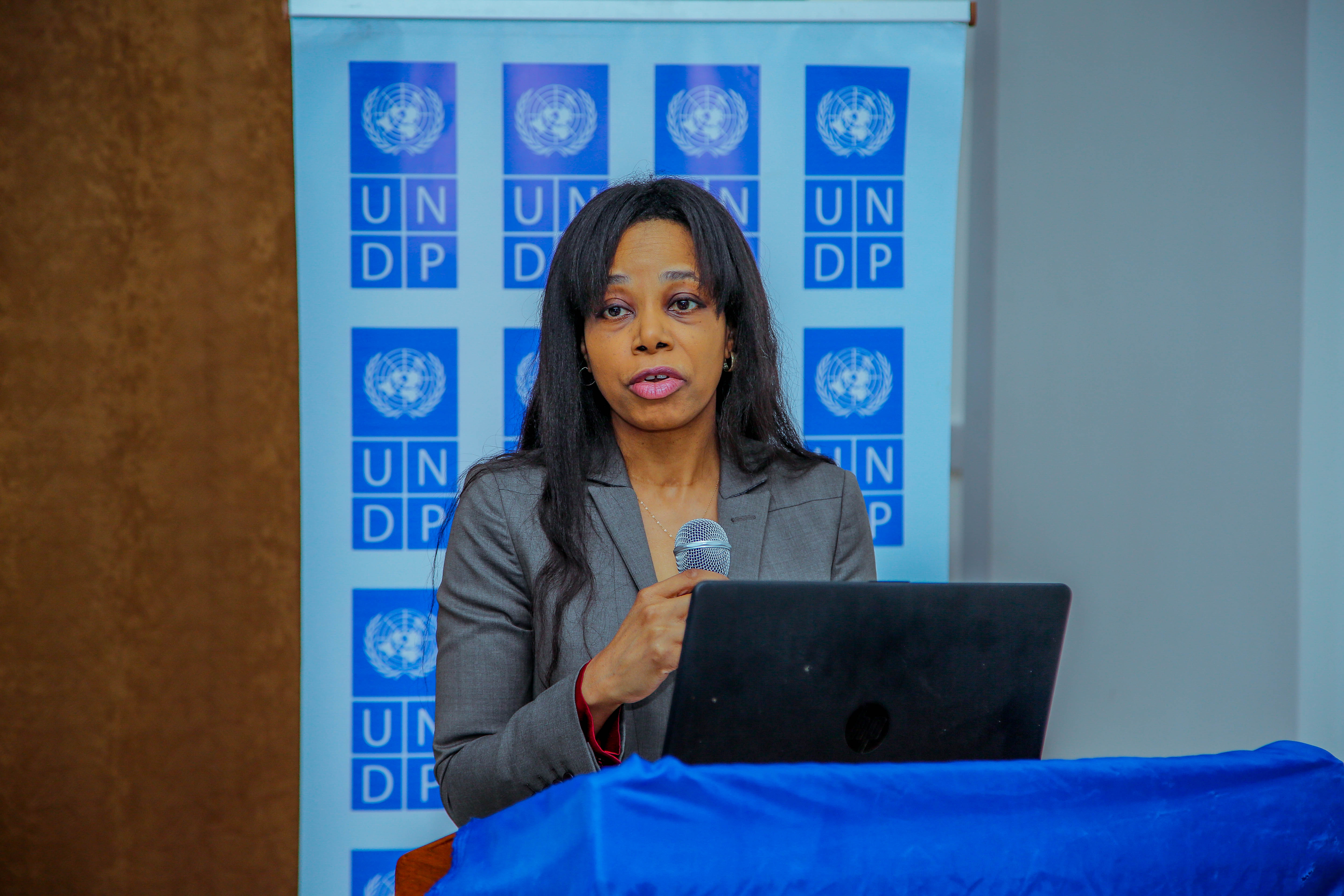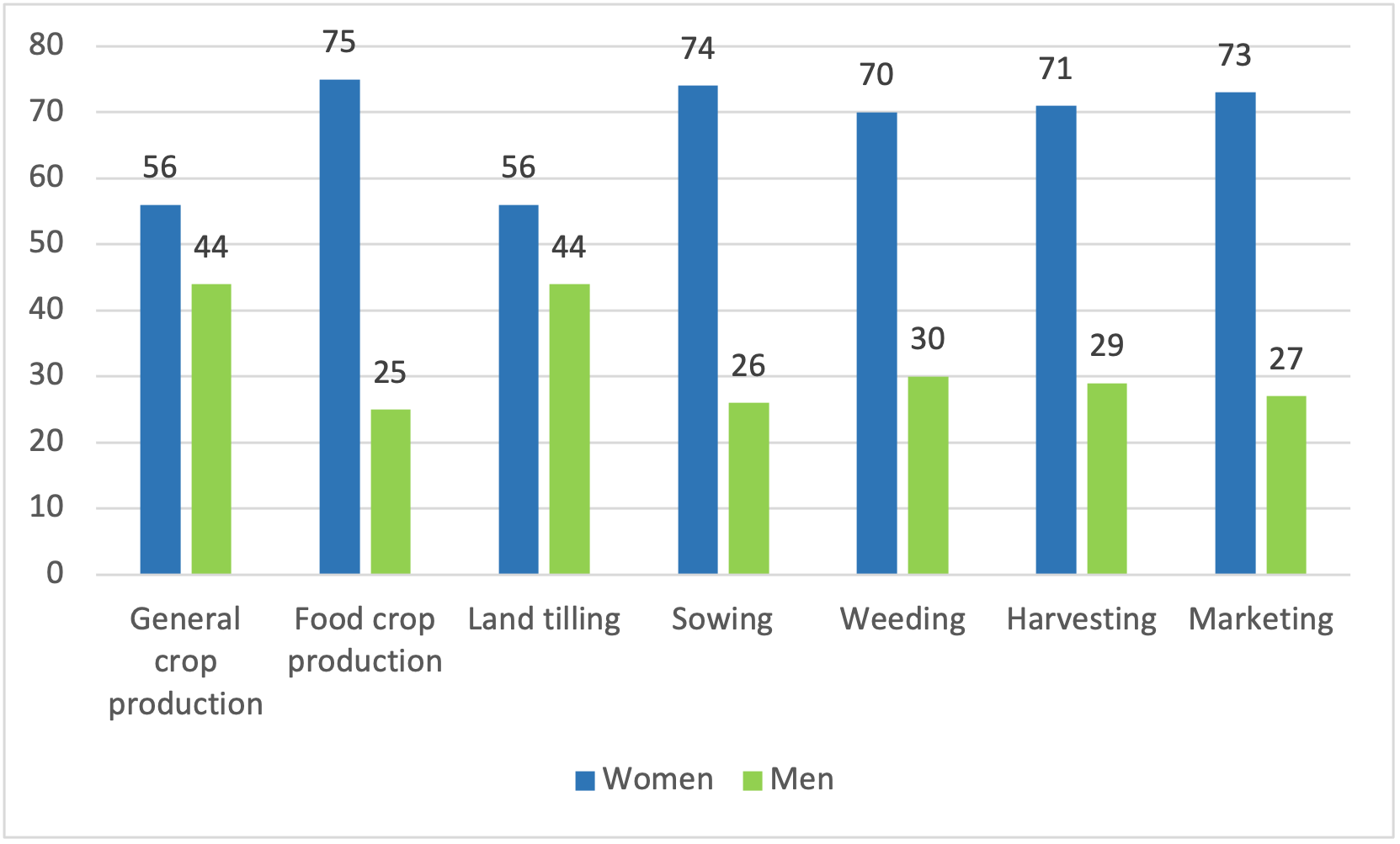Bridging the gender gap: Empowering Women in the Agricultural Sector
March 31, 2023

Participants of a workshop organised by UNDP Tanzania and the University of Dodoma hold a working paper on empowering women in the agricultural sector. The paper was assessed to acquire feedback for policy recommendations and improvement
Women are at the heart of Tanzania’s agricultural transformation strategy. Tanzania’s new agricultural transformation strategy, known as Agenda 10/30, aims to increase the sectors’ growth to 10 percent per year by 2030. To achieve this target, the government plans to increase the number of workers employed in the sector by 3 million in mainland Tanzania and 300,000 in Zanzibar, to be made up mostly of women and youth.
As part of UNDP’s goal to ensure gender equality for all women and girls, UNDP has collaborated with the University of Dodoma to produce a working paper on empowering women in the agriculture sector. The paper assesses the gender equality and women’s empowerment implications of Agenda 10/30 using economic modeling.

Badru Abdunuru, Director of the Gender Department at the Ministry of Community Development, Gender, Women, and Special Groups, serves as the Guest of Honor at a workshop organised by UNDP Tanzania and the University of Dodoma
The findings of paper were presented at a technical workshop to solicit feedback on its assumptions, methodology and policy findings. The paper aims to support government, and development partners in devising an appropriate mix of sector-specific and gender-forward enabling environment policies for advancing gender equality and women’s empowerment in the agriculture sector.
“We trust these findings will trigger discussions around where opportunities lie to accelerate the progress in achieving gender equality in the agricultural sector of the Tanzanian economy,” said badru Abdunuru, Director of the Gender Department in the Ministry of Community Development, Gender, Women and Special Groups
The paper highlights that providing equal access to productive inputs for both male and female farmers may not guarantee equal levels of agricultural productivity outcomes among them. “This paper presents a growing body of evidence that shows that women’ productivity in the agriculture sector is undermined by various constraints,” commented Weyinmi Omamuli, UNDP Tanzania Senior Economic Advisor

Weyinmi Omamuli, Senior Economic Advisor at UNDP Tanzania, delivering the opening remarks at a workshop presenting a working paper on empowering women in agriculture.
Dr. Asiya Maskaeva, Principal Investigator and Senior Lecturer at University of Dodoma, and co-author of the paper said, “women economic empowerment is one of the most important topic not only for Tanzania but for most of the countries in the world. The comments and feedback we received today will help us in refining this research paper.”
The paper aims to help shed more light on the nature and operation of the constraints that continue to undermine women’s productivity in the agriculture sector. The paper tests the effects of policy changes on key indicators of women’s economic empowerment, such as income, household consumption, employment and productivity, using economic modelling.
A glimpse of the working paper
In April 2022, President Samia Suluhu Hassan unveiled her new agricultural transformation strategy – dubbed ‘Agenda 10/30’ – which, as the name alludes, aims to accelerate the pace of output growth in the sector to 10 percent by 2030. At the centre of this strategy is a planned expansion in the amount of labour and land allocated to the sector. An extra 3 million workers are expected to be added to the sector by 2025 – to be made up mostly of women and youth – and land under cultivation is expected to reach 20 million hectares by 2030. Other key elements of the strategy include a massive expansion of irrigation, institution of a block farm system to aggregate smallholder farmers, and deployment of seed multiplication innovations.
The focus on women in the agricultural transformation strategy presents an opportunity to ignite progress towards women’s economic empowerment and catalyse broader gender equality. More women than men (67 percent of the country’s total female labour force versus 64 percent of the male labour force) work in the agriculture sector, most of whom are currently at a distinct disadvantage when it comes to accessing productive inputs such as land, labour (family or hired), fertilizer, improved seeds, labour-saving technology, and finance.
For more information on the CGE Modelling on Empowering Women in the Agriculture Sector Report click HERE

Figure 1: Division of Labour in Agriculture by women and men, in % of hours spent on activity
UNDP Tanzania is committed to promoting gender equality and empowering women, youth, and people with disabilities. We provide support for policy development, capacity-building, and other interventions that result in tangible benefits for these groups. Our programs are tailored to meet the needs of the country and focus on enhancing livelihoods and employment opportunities for women and youth. We strive to ensure that these groups are not left behind in Tanzania's sustainable development efforts.

 Locations
Locations

